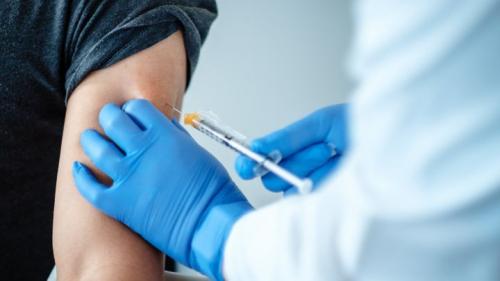Vaccine apartheid and the Delta variant
In the world’s poorest countries, only between 0.3 to 0.9% of the population has gotten a vaccine shot, and the virus is spreading virtually unchecked.
- Opinión

The term “delta” in science and mathematics denotes a difference, or a gap; as in the delta between two values. In geography, a delta is where a river meets the sea, spreading out, covering the most area in its course. In reference to the ongoing COVID-19 pandemic, Delta is the highly contagious variant of the SARS-CoV-2 virus that is tearing through unvaccinated populations around the globe. First referred to by scientists as B.1.617.2, the Delta variant is more contagious than others and may lead to more serious cases of COVID-19. The best protection against this or other coronavirus variants is to get vaccinated. In wealthy nations like the United States, where over 62% of the eligible population has received at least one vaccine shot, COVID-19 case rates and deaths are the lowest they have been since March of 2020, and continue to fall. Conversely, in the world’s poorest countries, only between 0.3 to 0.9% of the population has gotten a vaccine shot, and the virus is spreading virtually unchecked.
This delta between the rich and the poor is the result of vaccine apartheid. While this inequity persists, none of us will truly be safe.
“The pandemic has mutated,” Achal Prabhala, coordinator of AccessIBSA, which campaigns for access to medicines in India, Brazil and South Africa, said recently on the Democracy Now! news hour. “What was once a global calamity is now largely a developing country problem.”
Prabhala was speaking from India, where the Delta variant was first identified. India, with its population of 1.4 billion, is experiencing a devastating COVID-19 surge, with daily deaths as high as 4,000. “Our public health system simply isn’t capable of treating people in this country,” he said.
Despite the grim news, Achal Prabhala has hope. Days earlier, he co-chaired a session at the Summit for Vaccine Internationalism, held about a week after the G7 summit occured in the UK. Organized by the Progressive International, the emergency vaccine summit included the governments of Argentina, Mexico, Bolivia, Cuba and Venezuela, representatives from the regional governments of Kisumu, Kenya and Kerala, India, and political leaders, organizers, and others from over 20 countries.
“What we’re looking for is an alternative to a system that has basically allowed for COVID-19 vaccines to be absolutely concentrated in the higher-income countries,” Carina Vance Mafla, the former health minister of Ecuador who co-chaired with Prabhala, explained on Democracy Now! “We have in front of us practical solutions that could resolve this horrible inequity that we’re seeing globally.”
Summit participants agreed to pursue a range of solutions to the pandemic, including open collaboration on Covid-19 vaccine technologies, fair “solidarity” pricing for Covid-19 vaccines, pooling of regulatory and manufacturing capacity to expedite vaccine and medical equipment production, and, finally, a call to engage in collective disobedience, ignoring patent monopolies imposed by Big Pharma (multinational pharmaceutical corporations) and the World Trade Organization (WTO).
Leaders at the G7 summit pledged to donate one billion vaccine doses, but Bloomberg News reported that the true number, excluding doses already promised, was actually closer to 613 million. An estimated nine to eleven billion doses are needed to fully vaccinate everyone on the planet.
Achal Prabhala observed that these donated vaccine doses “will only come to these poor countries at the end of this year or at the beginning of next year. On a daily basis last month, on average, we had…15,000 deaths a day globally. When you consider numbers like that, a day’s delay, a week’s delay, a month’s delay, a year’s delay is almost criminal.”
In October 2020, India and South Africa proposed a waiver for COVID-19 related patents under the WTO’s TRIPS (Trade-Related Aspects of Intellectual Property Rights) Agreement, and in May, the Biden administration surprised many by endorsing the proposal. The waiver would require the unanimous consent of all 164 member nations of the WTO, and, activists fear, couldn’t be obtained earlier than the organization’s full ministerial meeting in early December.
The New England Journal of Medicine published a special report on the COVID-19 variants on Wednesday, warning, “vaccines are being rolled out slowly, partly because of limitations on production capacity and ‘vaccine nationalism,’” adding further that “vaccine development… should be viewed as international enterprises, with international coordination by the World Health Organization helping benefits to accrue throughout the world.”
Overcoming vaccine apartheid can’t wait on the WTO’s schedule. While immediate vaccine donations from wealthy nations are urgently needed, poorer, developing nations, and countries like Cuba and Venezuela suffering under crushing U.S. sanctions, just might need to engage in that collective disobedience called for by the Progressive International. If and when they do, grassroots support from allies in the U.S. and other privileged, vaccinated countries will be essential, and lifesaving for all.
The original content of this program is licensed under a Creative Commons Attribution-Noncommercial-No Derivative Works 3.0 United States License. Please attribute legal copies of this work to democracynow.org.
Del mismo autor
- Putin’s war on Ukraine could spark a nuclear catastrophe 04/03/2022
- La persecución de Biden contra Julian Assange 18/01/2022
- Biden’s persecution of Julian Assange 06/01/2022
- ¿Reconstruir mejor o construir más bombas? La elección es clara 13/12/2021
- Facebook Papers: cumplicidade no ódio, nas mentiras e na violência 28/10/2021
- Es hora de eliminar a Facebook de nuestra lista de amigos 11/10/2021
- El espía que se metió en tu teléfono 20/09/2021
- De Kabul al río Bravo, Estados Unidos crea crisis de refugiados 31/08/2021
- Después de décadas de guerra, el pueblo afgano merece la paz 23/08/2021
- Código rojo: la emergencia climática exige una acción inmediata 16/08/2021








